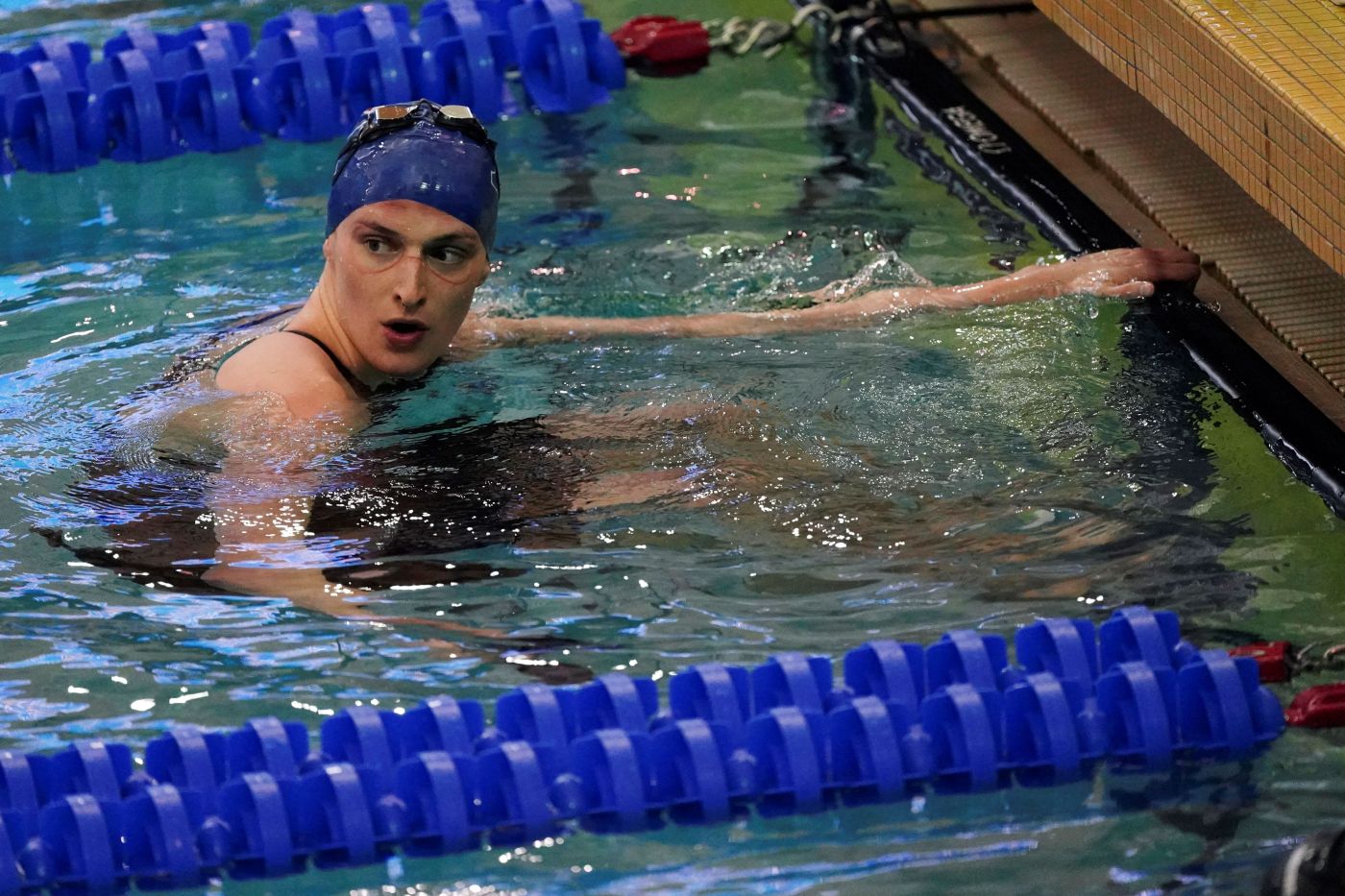
Riley Gaines: Charlie Baker can protect women’s sports
A penalty corner. A male player at the top of the circle winds up for a shot at the goal. Female defenders rush to try to get their stick on the ball. The male hitter has made contact with the solid ball. The ball is in the air headed straight into the teeth of a female defender. Screams. Teeth are knocked out of her mouth and there’s significant damage to her jaw. The male player stays on the field to finish up and win the game for the women’s field hockey team 2-0. The female players are devastated.
This happened in Charlie Baker’s backyard. Not only in his home state but in a sport his daughter Caroline played and one which he now oversees in his role today. Yet, Charlie Baker – former Massachusetts governor and current National Collegiate Athletic Association president – has said nothing about the horrific incident.
Baker continues to say nothing with respect to preserving the safety and integrity of women’s sports.
Baker says he cares about women’s sports. He should. His daughter was, in his estimation, “a terrific field hockey player in high school.” Friends tell me that the former Massachusetts governor and his wife were very supportive of their daughter’s athletic career and that the two were often spotted on the sidelines cheering her on.
When Baker became president of the NCAA last year, I was hopeful that his experience as a father would motivate him to protect women’s sports. So far, it hasn’t.
In January 2023, I wrote to Baker about my experience racing Lia Thomas, then a member of the UPenn women’s swim team who had previously competed on the men’s team as Will Thomas.
My story is now well known. As a member of the University of Kentucky women’s swim team, I watched on March 17, 2022, as Thomas swam to a national title in the 500-yard freestyle, beating out the most impressive and accomplished female swimmers in the country, including Olympians and American record holders. The next day, I raced Thomas in the 200-yard freestyle. We tied. But, having only one trophy, the NCAA handed it to Thomas for the photo op. I was left feeling demoralized and betrayed.
But I was not alone. Although afraid to speak out publicly, many female swimmers have shared with me their horror at having to race Thomas or share a locker room with this over-6-foot-tall intact male. And I have vowed to speak for them and for all of the other young women who are being forced against their will and without their consent to step aside for males in women’s sports or to share private changing spaces with males.
I wrote to Baker in January not only to recount my personal experience but to explain how NCAA policies have left female athletes hurt, traumatized, or excluded. In my letter, I asked him for a meeting to discuss the future of women’s sports. Despite following up with phone calls to his office, Baker did not respond.
Last month, Baker testified before the United States Senate Judiciary Committee. Although the hearing was formerly called to consider “Name, Image, and Likeness, and the Future of College Sports,” several senators asked Baker about women’s sports and about whether the NCAA might revisit policies that allow males to compete on women’s college teams.
Disappointingly, Baker hedged.
Claiming that he wouldn’t “defend” what happened in 2022 before he became NCAA president, Charlie Baker refused to tell senators whether he would revisit current policies. Instead, he deflected, claiming that “the rules around transgender athletes generally are more restrictive today than they were in ‘22.”
Sen. Josh Hawley. R-MO, slammed Baker’s “meaningless word salad.”
In fact, current NCAA policy allows males who identify as women to play women’s sports, so long as their levels of testosterone meet sport-specific requirements. The policy contradicts scientific studies that have found testosterone suppression cannot eliminate the male athletic advantage.
Even if it could, allowing males to compete in women’s sports harms female athletes in innumerable ways that have nothing to do with fair play.
When NCAA member schools put male bodies on women’s podiums, they publicly humiliate female athletes by asking them to measure their physical attributes and athletic accomplishments against male standards. When they give trophies to male athletes who have suppressed their naturally occurring testosterone in order to compete as women, they tell female athletes that they do not measure up to even a hormonally-impaired male body.
When they allow male bodies to compete on women’s teams at all, they send a very clear message that the “inclusion” of males is more important than equal opportunity for females. And they send a message that whenever playing time or roster spots are limited, female athletes must step aside to placate the feelings of a biological male. These messages are regressive, and they are misogynistic. My sincere hope is that, as a father of a former female athlete, Charlie Baker will come to understand that inclusion should not and cannot be achieved on the backs of women.
Last month, Baker told the Judiciary Committee that he has “talked to probably 1,000 student athletes” since taking the job in March 2023. But he still has not responded to my letter and to my request for a meeting.
Mr. Baker, what are you waiting for?
Riley Gaines is an ambassador with Independent Women’s Forum (iwf.org) and a former 12x All-American swimmer at the University of Kentucky.
Former collegiate swimmer Riley Gaines speaks at a news conference about transgender inclusion in sports at the North Carolina Legislative Building, Wednesday, April 19, 2023, in Raleigh, N.C. The North Carolina House passed legislation Wednesday that would prohibit transgender girls from joining female sports teams in middle school, high school and college. (AP Photo/Hannah Schoenbaum)


